Brown algae for blue plastic

Where did you get the idea of using algae to make plastic ?
I combined the various facets of my personal history. I come from a family of seaweed harvesters, fishermen who specialise in collecting seaweed. However, I did not follow in the family tradition since I worked in the traditional plastics industry for around fifteen years, and more specifically in the field of thermoforming and injection. Many of our customers were interested in plant-based plastics. I had the feeling that there was scope for a new market. The family's past caught up with me and I studied the algae which contain the molecules required for manufacturing plastic.
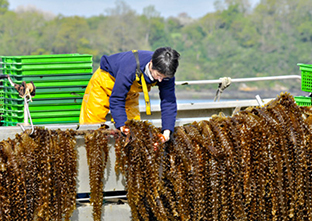
What are the manufacturing processes ?
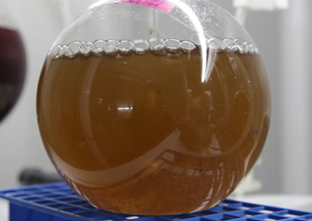 I don't want to give too much away. All I can say is that we are the first in the world to have developed this technology which has led to us filing several patents. It took around a decade to perfect the process. The hardest part was finding in the algae a natural molecule which behaves like the molecules used in the usual petro-sourced materials. But this is just a part of our innovations which mainly rely on thermal and mechanical processes. Finally, I would like to stress one point: we do not add any other products, the Algopack material is 100% made of this algae molecule.
I don't want to give too much away. All I can say is that we are the first in the world to have developed this technology which has led to us filing several patents. It took around a decade to perfect the process. The hardest part was finding in the algae a natural molecule which behaves like the molecules used in the usual petro-sourced materials. But this is just a part of our innovations which mainly rely on thermal and mechanical processes. Finally, I would like to stress one point: we do not add any other products, the Algopack material is 100% made of this algae molecule.
Where do the algae come from ?
 They are brown algae grown located in Brittany. The algae are magical. They capture CO2 and feed oxygen into the water, which promotes plankton and therefore the development of food for shellfish. We encourage polyculture, which involves combining algae cultures with other marine cultures. Fish is scarce, the fishing industry is suffering and many fishermen are forced to remain on land. Developing algae chains creates employment, while respecting the biodiversity of the areas. But this is far from being the only advantage: growing algae does not require any pesticides or fertilisers, unlike the other bio-materials derived from corn or sugar cane, which both consume large amounts of chemicals and water. In addition, we do not encroach on agricultural land.
They are brown algae grown located in Brittany. The algae are magical. They capture CO2 and feed oxygen into the water, which promotes plankton and therefore the development of food for shellfish. We encourage polyculture, which involves combining algae cultures with other marine cultures. Fish is scarce, the fishing industry is suffering and many fishermen are forced to remain on land. Developing algae chains creates employment, while respecting the biodiversity of the areas. But this is far from being the only advantage: growing algae does not require any pesticides or fertilisers, unlike the other bio-materials derived from corn or sugar cane, which both consume large amounts of chemicals and water. In addition, we do not encroach on agricultural land.
What are the markets for your new plastics ?
For the time being, our catalogue contains two materials: Algoblend, a material made from 50% algae and 50% traditional plastic, and Algopack, a material made from 100% algae. The first has received approval for "contact with food" and "toys" and many markets are therefore open to it. Another advantage is that Algoblend is mouldable at a temperature of 170° as opposed to the 220° required for traditional plastics. Processors also see in it a means of reducing their production costs, particularly given that the material can be used in common moulds and extruders, requiring no additional investments to be made.
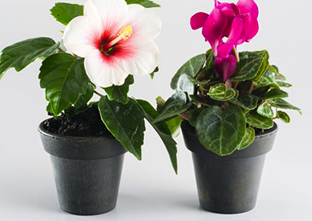
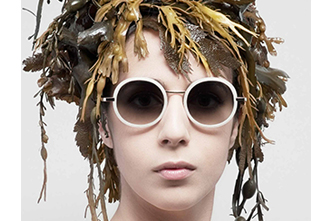 Algopack is still currently on niche markets given that our production is still low. It is still not suitable for contact with food, but our research is progressing and we are currently developing a solution aimed at preventing the material from degrading when in contact with food. We have also recently started developing an activity converting Algopack. The material reacts very well in an electromagnetic environment, thereby, we are manufacturing shells for USB sticks. Finally, an optician in Nantes has started selling a range of frames made from algae.
Algopack is still currently on niche markets given that our production is still low. It is still not suitable for contact with food, but our research is progressing and we are currently developing a solution aimed at preventing the material from degrading when in contact with food. We have also recently started developing an activity converting Algopack. The material reacts very well in an electromagnetic environment, thereby, we are manufacturing shells for USB sticks. Finally, an optician in Nantes has started selling a range of frames made from algae.
What about the end-of-life of this plant-based plastic ?
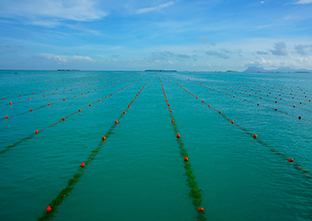 Algopack is biodegradable and compostable, it degrades in twelve weeks when buried underground. This helps to make use of the algae's historical function as a natural fertiliser. And if it ends up in water, it will degrade in a few hours without causing any pollution. Many manufacturers in Japan, the United States and Ireland are very interested in our work. We carried out compatibility tests with local algae in those countries. The results are encouraging! The process could therefore be developed anywhere in the world, with non-invasive local algae. By analysing our products' lifecycles, we can proudly state that we are quite far from greenwashing!
Algopack is biodegradable and compostable, it degrades in twelve weeks when buried underground. This helps to make use of the algae's historical function as a natural fertiliser. And if it ends up in water, it will degrade in a few hours without causing any pollution. Many manufacturers in Japan, the United States and Ireland are very interested in our work. We carried out compatibility tests with local algae in those countries. The results are encouraging! The process could therefore be developed anywhere in the world, with non-invasive local algae. By analysing our products' lifecycles, we can proudly state that we are quite far from greenwashing!
MORE INFORMATION





